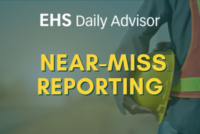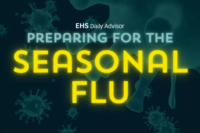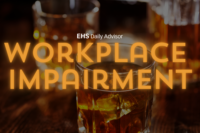As we bring EHS Daily Advisor’s ESG Week to a close, we’re looking at some of the different ESG disclosure frameworks that companies can use to determine what they should report and what they’re measuring. Here’s what you need to know about ESG reporting frameworks.
Contact with power lines is one of the most common causes of electrical injuries. Here’s what you need to know about power line safety, according to OSHA.
Head protection for employees is an essential part of workplace safety. Here’s what you need to know about storage of head protection such as safety helmets.
If you’re not concerned about the hazards posed by forklifts and other powered industrial trucks, you should be. Here’s what you need to know about powered industrial truck compliance.
When you investigate safety and health incidents, do you also investigate near misses? Here’s what you need to know about near-miss reporting and how it can be used to improve safety systems, hazard control, risk reduction, and to educate employees.
Are you prepared for winter workplace hazards caused by cold temperatures and seasonal precipitation like freezing rain, hail, or snow? Here’s what you need to know about winter hazards and how to take precautions to prevent injury to outdoor workers.
As we wrap up 2023, we’re taking a look back at some of our highlights from this year. Here are some more of our favorite infographics from the past 12 months.
As we wrap up 2023, we’re taking a look back at some of our highlights from this year. Here are some of our favorite infographics from the past 12 months.
Could you find yourself looking at a “tripledemic” of COVID-19, influenza, and respiratory syncytial virus (RSV) in the workplace this winter? Are you ready? Here’s what you need to know about preparing for the seasonal flu. Check out our Back to Basics: Prepare Now for a ‘Tripledemic’ of Respiratory Illnesses article for more information.
Are your employees showing up for work impaired by drugs and alcohol? Both surveys and drug testing are showing spikes in substance misuse. There’s a majority of adults in the workforce (61%) with a substance use disorder (SUD), according to government data cited by the National Safety Council (NSC). The White House Office of National Drug Control Policy […]









